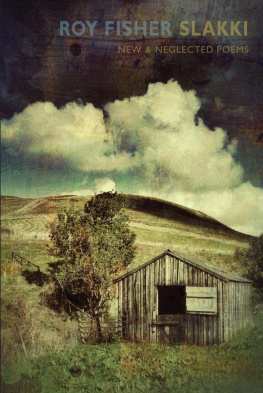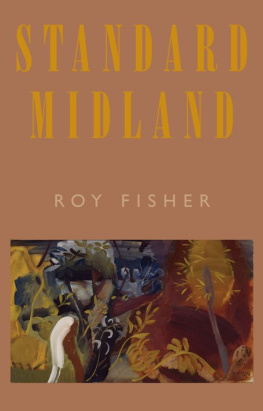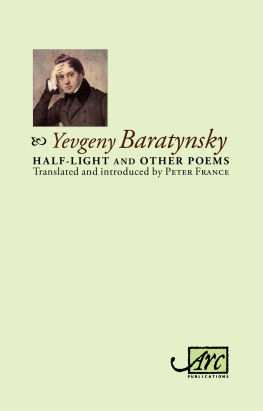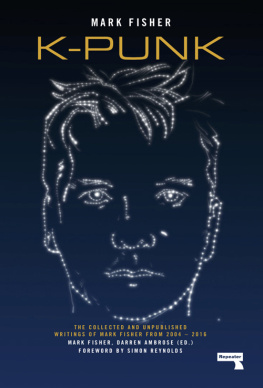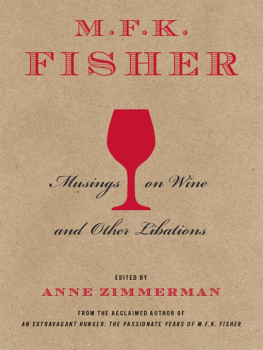ROY FISHER
SLAKKI
Edited by Peter Robinson
Poetry Book Society Special Commendation
Slakki is Old Norse for a shallow depression among hills: Not much of a valley. A Slack, writes Roy Fisher, with typical self effacement. But appearances are deceptive where this Slakki is concerned. Opening with new poems written during his 80s since his Costa-shortlisted collection
Standard Midland (2010) the books second section is a gathering of uncollected poems mainly written during the 1960s, though occasionally foreshadowed later in the previous decade, while the third part contains poems, similarly uncollected, written in the 1950s. I describe the poems in sections two and three of this book as neglected, Roy Fisher writes in an afterword. I must emphasise that these poems have not been passed over or slighted by publishers, editors or reviewers: indeed my work always seems to me to have had as much attention as it deserved or was likely to get.
The neglect has been entirely mine. Fishers Collected Poems 1968 from Fulcrum was a carefully constructed volume whose cut down selection was carried over into later retrospectives: The cut material was left to lie more or less unexamined again until now. That turn of events furnishes the majority of the neglected items in the present volume. Theres an element of what could better be called habitual negligence that also has a bearing. Peter Robinson produced and ordered the texts of Slakki in response to instructions and advice from Roy Fisher. Derek Slade contributed substantially to composing the notes on sources and earlier appearances of the works gathered here.
Cover photograph: Jim Donnelly
POETRY BOOKS BY ROY FISHER
City (Migrant Press, 1961)
Ten Interiors with Various Figures (Tarasque Press, 1966)
The Ships Orchestra (Fulcrum Press, 1966)
Collected Poems 1968 (Fulcrum Press, 1969)
Matrix (Fulcrum Press, 1971)
The Cut Pages (Fulcrum Press, 1971; Shearsman, 1986)
The Thing About Joe Sullivan: Poems 1971-1977 (Carcanet Press, 1978)
Poems 1955-1980 (Oxford University Press, 1980)
A Furnace (Oxford University Press, 1986)
Poems 1955-1987 (Oxford University Press, 1988)
Birmingham River (Oxford University Press, 1994)
It Follows That (Pig Press, 1994)
The Dow Low Drop: New & Selected Poems (Bloodaxe Books, 1996)
The Long & the Short of It: Poems 1955-2005 (Bloodaxe Books, 2005)
Standard Midland (Bloodaxe Books, 2010)
Selected Poems (Flood Editions, USA, 2011)
The Long & the Short of It: Poems 1955-2010 (Bloodaxe Books, 2012)
Slakki: New & Neglected Poems (Bloodaxe Books, 2016)
ESSAYS / INTERVIEWS / PROSE
Roy Fisher:
Nineteen Poems and an Interview (Grosseteste, 1975) Robert Sheppard & Peter Robinson:
News for the Ear: a homage to Roy Fisher (Stride Publications, 2000) John Kerrigan & Peter Robinson (eds.):
The Thing About Roy Fisher: Critical Studies (Liverpool University Press, 2000) Peter Robinson (ed.):
An Unofficial Roy Fisher (Shearsman, 2010) Tony Frazer (ed.):
Interviews Through Time (Shearsman Books, 2013) Peter Robinson (ed.):
An Easily Bewildered Child: Occasional Prose 1963-2013 (Shearsman, 2010)
Peter Robinson produced and ordered the texts of Slakki: New & Neglected Poems responding to the instructions and advice of Roy Fisher. Derek Slade contributed substantially to composing the notes on sources and earlier appearances of the works gathered here. Those notes constitute an extension to the acknowledgements. The first section contains recent poems. The second is a gathering of uncollected poems mainly written during the 1960s, though occasionally foreshadowed later in the previous decade. The third contains poems, similarly uncollected, written in the 1950s.CONTENTS
Slakki: Old Norse for a shallow depression among hills.
Not much of a valley. A Slack.
When the trench wall came away without warningand exposed the singularly tallGerman officer, set upright in the earthas if in a raised niche and seemingunharmed though dead, the sightgloves, boots, pale grey-blue greatcoat, attitudedid its work. For Lance-Corporal (signals) Fisher W., RoyalFusiliers, it would be the most splendid figure of a manhed ever see.Battered, the cathedral at Reims went some waytowards making up for the soldiery of Franceneither stoical nor sanitary.Then on sunny daysthe pleasure of making the sharp flashes of his heliographgo skittering over the filth for miles.
(for Sue Stanford)One after another the windows that made it gave up looking.The monitors cut out. No dashes for freedom:theres always management. The skythat had cared for the acre since the ocean recededbegan taking it back again without comment.Over a bank where ninetall old native cherries had oozed, splitand tottered down to pulp the stretch of airwhere years of magpies bungled their nestskept not a memory of all that racket.The plot filling up fast with curved shapes,some very small, some moving; bramblesarching above themselves and breaking in wavesdown inside the boundary wall. And above,the patch where design had planted saplings at randomto develop the pretence of a little wood rowan, field maple, hazel,goat willow, crab, walnut, sloe had becomethe little wood.
For centuries the language has been drawing in its horns:vowels trimmed back to prevent them from fragmenting,mutating or singing.
Syllables chime and clink quite small. Consonantspolish away often to nothing in the name of adaptability, the human trick:the world colonised again by way of a thousand airports, no problem, no problem.We walk on pavements rolled from the crushed shells of metaphors.My task, for an hour, is to deliverfor an audience mostly, like me, without Russian,helpful translations fashioned for Western ears.The texts before me are well knit, balanced, clearas to mood, congenial. The custom these daysis to speak such poetry as if quietly explaining a point in logic.So, with a nudge here and a pause there,I can speak these verses in the way Id speak my own.That done, the amiable man beside me, appearingfatigued beyond ever standing upright again,

